
In this recent piece in Fortnightly Review, Peter Robinson reflects on this question and on the joint Hardy Society / STW Society weekend in Dorchester in February 2024.

In this recent piece in Fortnightly Review, Peter Robinson reflects on this question and on the joint Hardy Society / STW Society weekend in Dorchester in February 2024.
The 2024 Society AGM will take place on 11th May at 11.15 a.m.
At The Learning Room, Shire Hall, High W St, Dorchester DT1 1UY
And on Zoom: https://ucl.zoom.us/j/93791432697 Meeting ID: 937 9143 2697
All members are welcome, in person or online. Please contact the Chair, Janet Montefiore, to let her know you are coming.
AGENDA
Naming is a potent way to obscure queer people and their relationships. One way this happens is through incorrectly referring to lesbians as friends, companions, sisters, or – a cliché that is now almost exclusively used ironically – ‘gal pals’. This reduces love to friendship, and incorrectly records history.
I recently spotted an example of this on the Faber website where on Sylvia’s author page, Valentine is referred to as Sylvia’s ‘close companion’. ‘Close’, here, is being expected to do an extraordinary amount of euphemistic work, given that the pair were lovers, partners, spouses, wives (pick your term) for almost forty years. Indeed, their ashes were scattered together, and their shared gravestone is a rare material testament to early 20th century sapphic love: ‘close’ doesn’t quite cut it.
When I emailed them, Faber promptly amended this webpage, thanking me for pointing it out. They published Winter in the Air in 2022, in which the biographical note describes Valentine as Sylvia’s ‘partner’, so we can assume that ‘close companion’ was copied from an older text, or was perhaps a legacy of an older version of the site.
The page now calls Valentine Sylvia’s ‘partner… whom she lived with from 1930 until her death’. It is a small change, but one Sylvia would have wanted. In the last of the letters collected in I’ll Stand By You (1998), she wrote to Valentine, ‘our love is the one thing I can never question’; I think she wanted us to know.
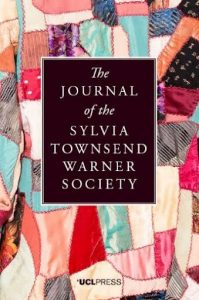
UCL Press Open Access Journals is excited to announce that The Journal of the Sylvia Townsend Warner Society has launched on a new platform; providing a more intuitive, improved navigation experience for its global readers.
The Journal of the STWS is a peer reviewed, open access journal aiming to create a wider interest in this brilliant, original and witty writer. It features scholarly articles, previously unpublished archival works by Warner, and pieces by well-known contemporary writers describing their appreciation of Warner.
The Journal also supports The Sylvia Townsend Warner Lecture series, a bi-annual event hosted at UCL, London. The series offers the opportunity to hear from acclaimed writers whose work touches on Sylvia Townsend Warner’s life and works. Previous lectures can be found on the link.
You can sign up for publishing alerts to keep abreast of calls for papers and new article releases.
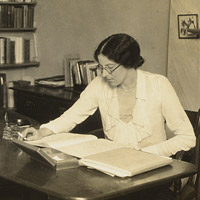
A Joint Study Weekend between the Sylvia Townsend Warner Society and the Thomas Hardy Society
From 09:30, Saturday 10th February until 17:00, Sunday 11th February 2024
At Dorchester Library, South Walks House, Charles St, DT1 1EE
Although not born in Dorset, the author and poet Sylvia Townsend Warner fell in love with the county when she visited Chaldon Herring and the surrounding area in the 1920s. The weekend will consider Hardy and Warner’s writing against the backdrop of a Wessex Landscape. Speakers will include Professor Jan Montefiore, Professor Peter Swaab and Mark Damon Chutter. 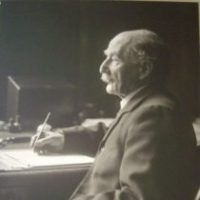
Book Tickets Here Detailed Programme Here
There will be a three-course meal (£35) served in the evening in the Casterbridge Room, King’s Arms, Dorchester. Please contact Kings Arms to book directly on 01305 234 234.
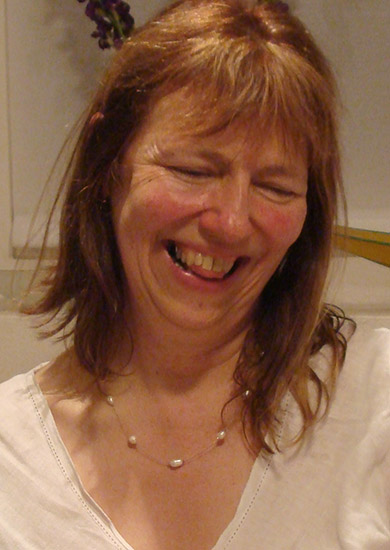 The Sylvia Townsend Warner Society is pleased to announce the Mary Jacobs Memorial Essay Prize 2022. The aim of the Prize is to encourage further study of the writings of Sylvia Townsend Warner, in honour of the distinguished work of Dr Mary Jacobs.
The Sylvia Townsend Warner Society is pleased to announce the Mary Jacobs Memorial Essay Prize 2022. The aim of the Prize is to encourage further study of the writings of Sylvia Townsend Warner, in honour of the distinguished work of Dr Mary Jacobs.
There are two optional themes for the 2022 essay competition, namely Warner’s writings after 1945, and Warner’s relations with another writer or writers. However, the Society will gladly accept essays on any aspect of the life and work of Sylvia Townsend Warner, and the prize will be awarded on merit whether or not the submitted essays address the optional themes.
The Award
The prize for the winning essay will be £300, publication in the Society’s Journal and one year’s free membership in the Society. There will be two runners-up prizes of £100 each.
Procedure
Essays should not be more than 6000 words, including notes.They should preferably be submitted in electronic form, or else in hard copy, and should be submitted in two parts – 1) the essay without any identifying details, and 2) a separate document with author’s name, title of the essay, and email and postal addresses. Entries should be sent electronically to p.swaab@ucl.ac.uk or in hard copy to The Editor of the Sylvia Townsend Warner Journal, English Department, UCL, London WC1E 6BT.
The deadline for receipt of entries is 31 December 2022. The winners will be notified by the Chair of the Society in January 2023.
The winning essay will be published in the Sylvia Townsend Warner Journal in 2023.
Terms and Conditions
• The competition is open to all, with the exception of the officers of the Society.
• The judges’ decision will be final and no correspondence will be entered into.
• The Committee reserves the right not to award the Prize or runners-up prizes if entries are deemed not to merit the award.
• Essays entered must not have been published elsewhere or have publication pending.
• The Society will not contribute towards any expenses incurred by entrants to the competition.
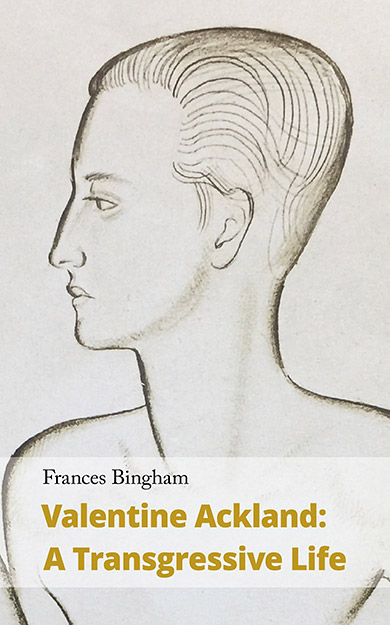 A host of marvellous new books about Sylvia Townsend Warner and her circle are currently being published.
A host of marvellous new books about Sylvia Townsend Warner and her circle are currently being published.
English Climate: Wartime Stories (21 May 2020)
Persephone Books have collected twenty-two of Warner’s stories dating from 1940 to 1946 and have republished them as English Climate. Some were reprinted in two volumes, A Garland of Straw in 1943 and The Museum of Cheats in 1947, and one or two have appeared in anthologies since. Lydia Fellgett, who runs Persephone, writes in her Preface: ‘These stories show a writer seeking to understand what life was like in Britain at war. She worked quickly, without the haze of nostalgia, and (unlike her novels, which moved between the centuries) they were always contemporary, reflecting the texture of what was happening at that moment in time. Almost all the stories are set in English market towns and villages, with a few recurring characters providing snapshots of communities of women throughout the war. Funny, brilliantly written, at times utterly heart-breaking, delightfully sharp, dry, intelligent and full of memorable characters: they are stories that strike the reader as somehow true as only the best fiction can.’
Women Writing for Women: Life-Writing, Genre and Criticism in the Texts of Sylvia Townsend Warner and Valentine Ackland (27 May 2020)
In her academic monograph, Ailsa Granne explores Warner’s relationship with Ackland by closely examining the women’s letters and diaries alongside a selection of other texts, in particular their poetry, to reveal the crucial role writing played in establishing, maintaining, and defending their intimacy. Warner and Ackland’s need to speak as women, writers and lovers shaped their texts, so that they became not simply records of events, nor acts of communication, but complex documents in which love is won and lost, myths are created, and lives are changed. Examining how Warner and Ackland exploited the distance between their lived life and their written accounts of it, Ailsa Granne explores the fluidity of the boundaries between letters, diaries and fiction and provides a fresh perspective on these life-writing forms.
Side-stepping Normativity in Selected Short Stories by Sylvia Townsend Warner (1 August 2020)
In another academic book, Rebecca K. Hahn attempts a comprehensive study of Warner’s short stories, showing how Warner’s innovative narrative style refused to conform to conventional modernist standards, and thereby contributed to the canon of queer modernist and post-modernist writers.
Bloomsbury Stud: The Life of Stephen ‘Tommy’ Tomlin (24 September 2020)
Michael Bloch and Susan Fox give a fascinating account of the life of Stephen ‘Tommy’ Tomlin, one of the most enigmatic figures of the Bloomsbury Group. Tomlin attended Harrow School, where Warner’s father, George Townsend Warner, was a housemaster and Master of history. At Harrow and afterwards in London, he formed a strong friendship with Warner, introducing her to the Dorset village of East Chaldon and the writer T.F. Powys, though the pair were to eventually stop speaking. Bloomsbury Stud looks at Tomlin’s career as a sculptor, and his relationships with Bloomsbury and other friends, stories of which are posted dynamically on Instagram at @bloomsburystud.
Valentine Ackland: A Transgressive Life (20 May 2021)
Published on what would have been her 115th birthday, Frances Bingham’s biography of Valentine Ackland reveals the remarkable cross-dressing woman, poet and activist with whom Warner shared her life. Alongside the story of the couple’s relationship and Ackland’s radical politics, the biography celebrates Ackland’s queer identity and recovers an important story from British lesbian history.
Frances Bingham was interviewed by the Guardian on Ackland’s communism, and tells why the poet was blacklisted by MI5.
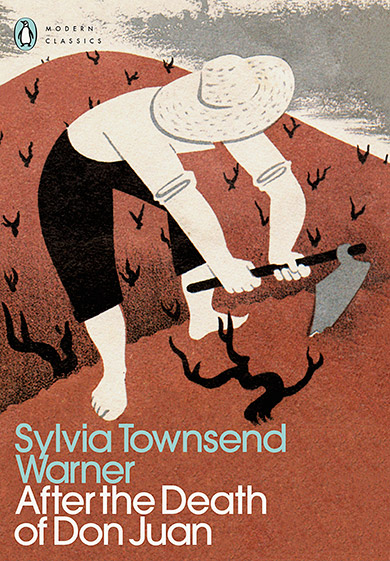
Beginning with the publication of Lolly Willowes this autumn, Penguin are releasing all seven of Warner’s unique novels as Modern Classics: Mr Fortune’s Maggot, The True Heart, Summer Will Show, After the Death of Don Juan, The Corner That Held Them and The Flint Anchor.
To celebrate the release, Peter Swaab and Harriet Baker were invited to speak about Warner’s novels on BBC Radio 4’s Today Programme.
Lolly Willowes will also be released as an audio book in April 2021.
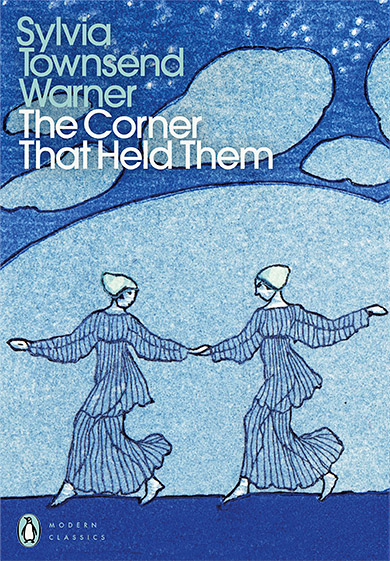 The latest Journal of the Sylvia Townsend Warner Society is now available to read online from UCL Press. The issue includes Peter Swaab’s 2019 lecture, ‘Sylvia Townsend Warner and the Possibilities of Freedom’; an essay from David Trotter titled ‘Posthuman? Aeroplanes, Animal Corpses and Very High Frequencies in the Work of Valentine Ackland and Sylvia Townsend Warner’; and the first of a two-part sequel to Warner’s 1948 novel, The Corner That Held Them.
The latest Journal of the Sylvia Townsend Warner Society is now available to read online from UCL Press. The issue includes Peter Swaab’s 2019 lecture, ‘Sylvia Townsend Warner and the Possibilities of Freedom’; an essay from David Trotter titled ‘Posthuman? Aeroplanes, Animal Corpses and Very High Frequencies in the Work of Valentine Ackland and Sylvia Townsend Warner’; and the first of a two-part sequel to Warner’s 1948 novel, The Corner That Held Them.
The Corner That Held Them was Warner’s own favourite novel. ‘I think it is the best book I have ever written,’ she wrote to Paul Nordoff. ‘It is certainly the book that I have most written, the one that is most me.’ She worked on it between 1941 and 1947 and found it hard to let go. ‘It has really been agony doing the final proofs of the novel. I love it so much I can’t bear to part with it.’ So much so, indeed, that she didn’t completely part with it but instead began a sequel, of which the Warner–Ackland Archive houses 58 typed pages, published here for the first time.
The narrative of the sequel carries on almost immediately after the conclusion of the novel, following Dame Sibilla after she has decided to abscond from the nunnery at Oby to join a pilgrimage headed for Jerusalem. Warner wrote to a friend that ‘I love him [Chaucer] so much that I had the greatest difficulty keeping him out of Oby’. Indeed, the sequel embraces the Chaucerian setting of a group of pilgrims on the road, in this case heading beyond Canterbury to Jerusalem. As in the novel, in which the centre of consciousness moves fluidly from one figure to another, the narrative shows the group of pilgrims first from Sibilla’s perspective, before moving on to two of the other pilgrims, Martin Hawte and Wilkin Shaw. We see the pilgrims join in singing – the last voice falling silent ‘as a frozen bird falls off the bough before the first rays of the thawing sun’ – squabbling, and comparing the taste of faggots in a cathedral town against the previous year.